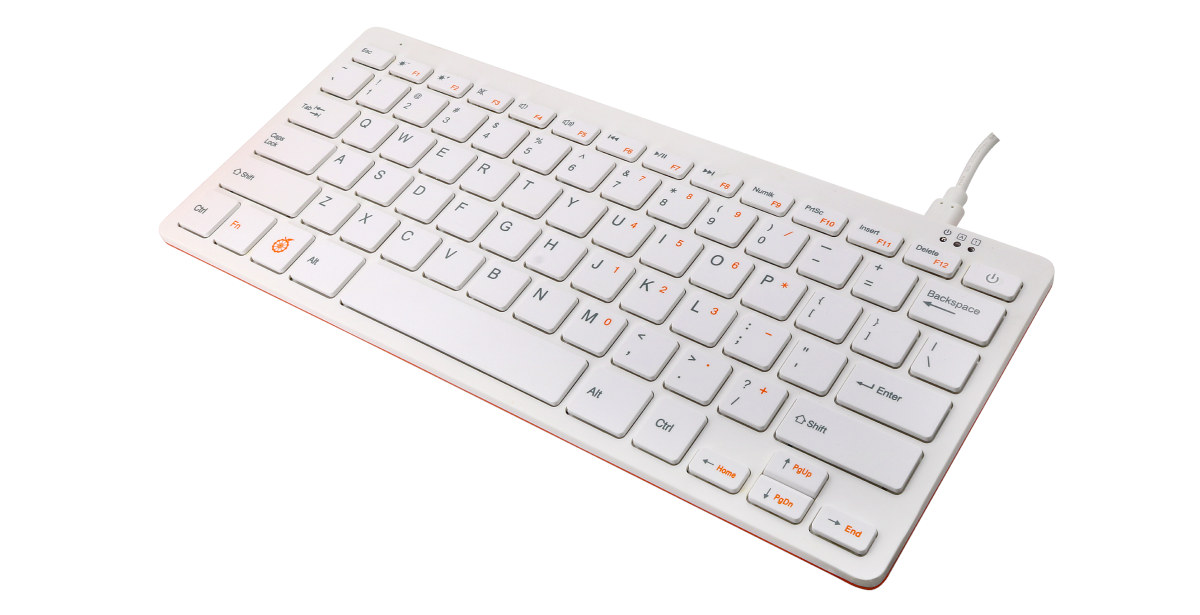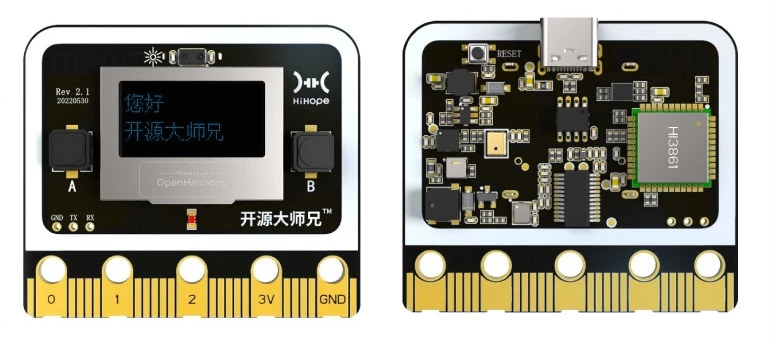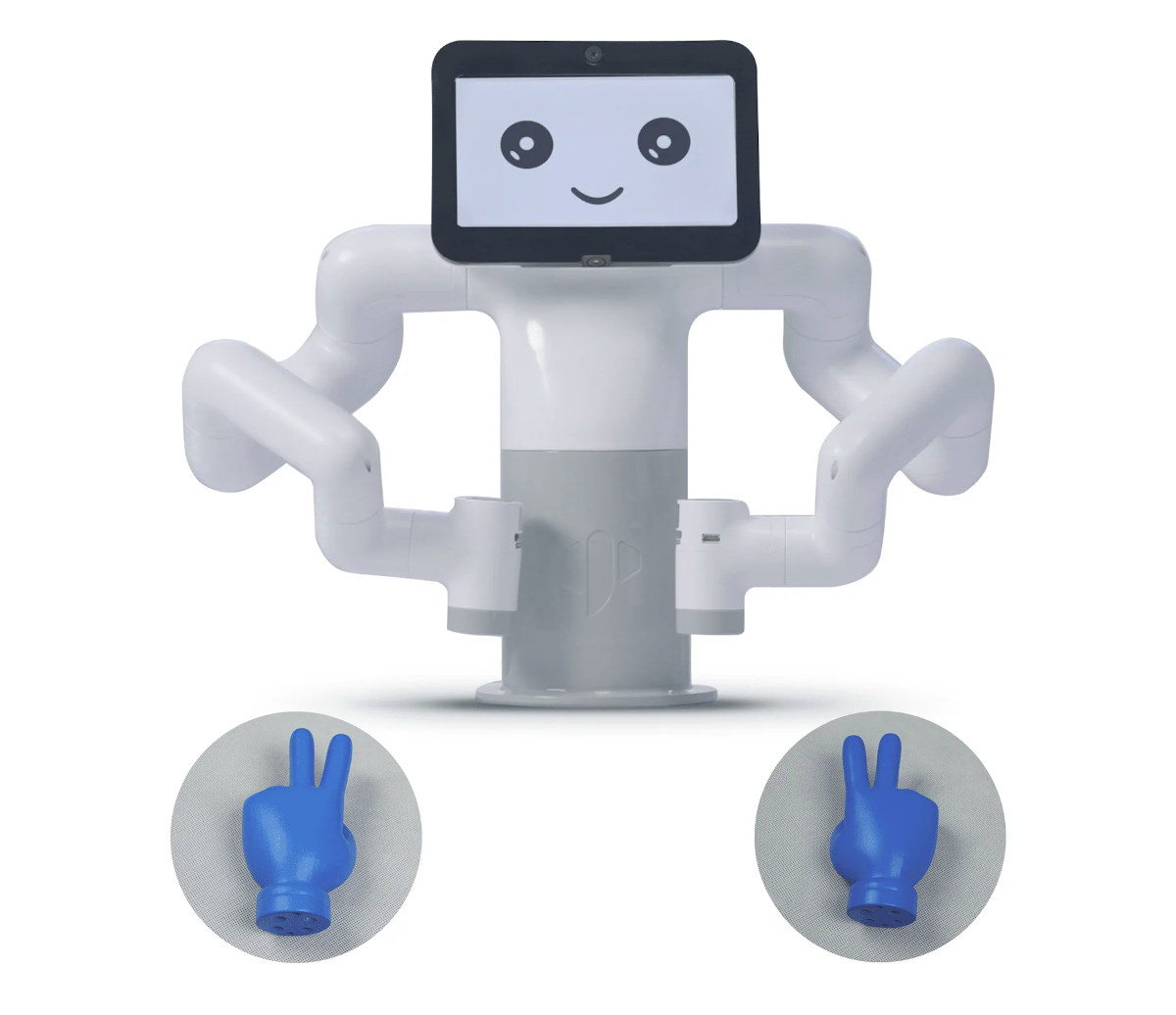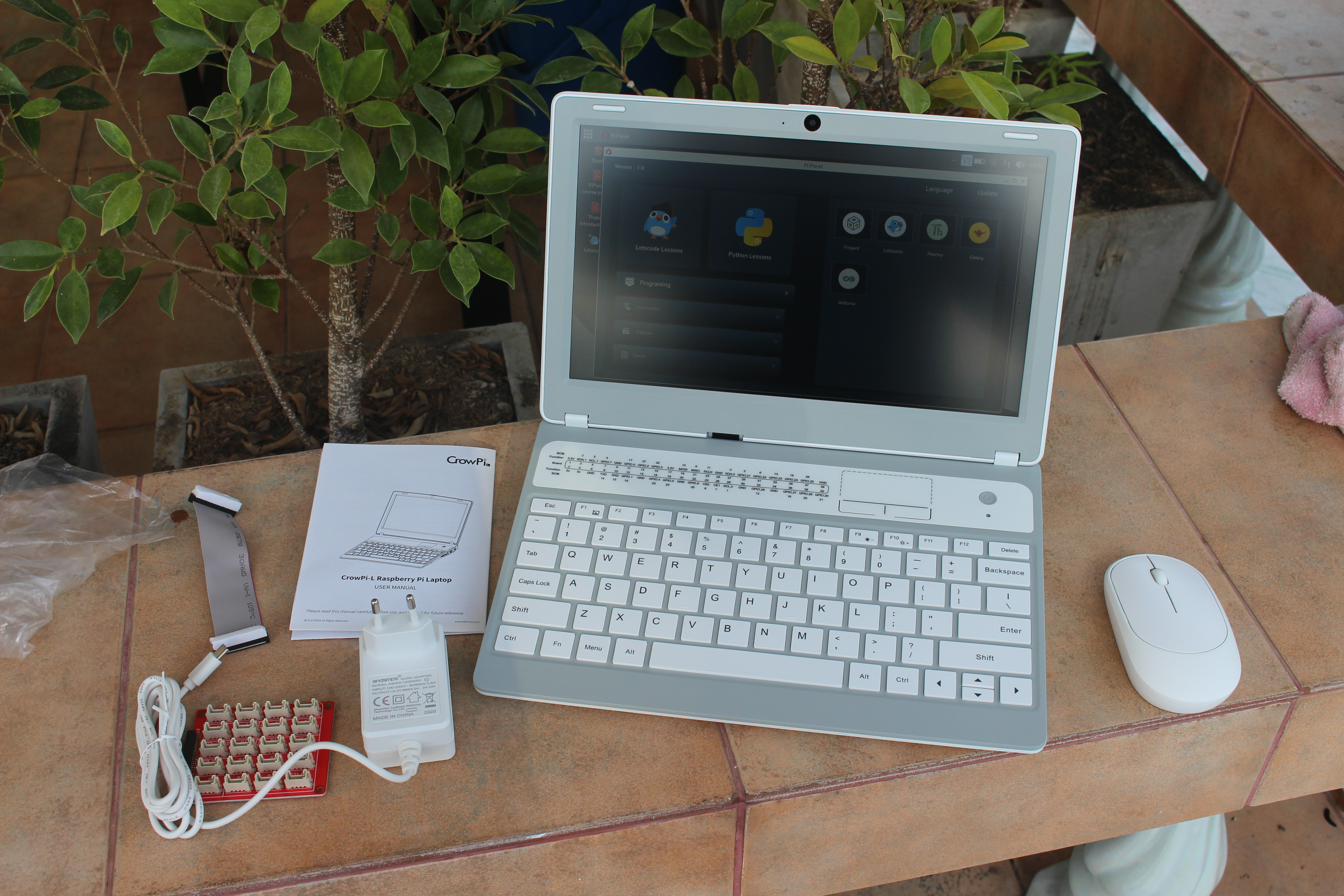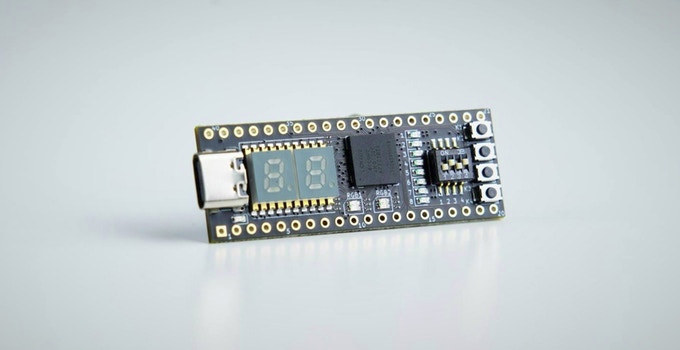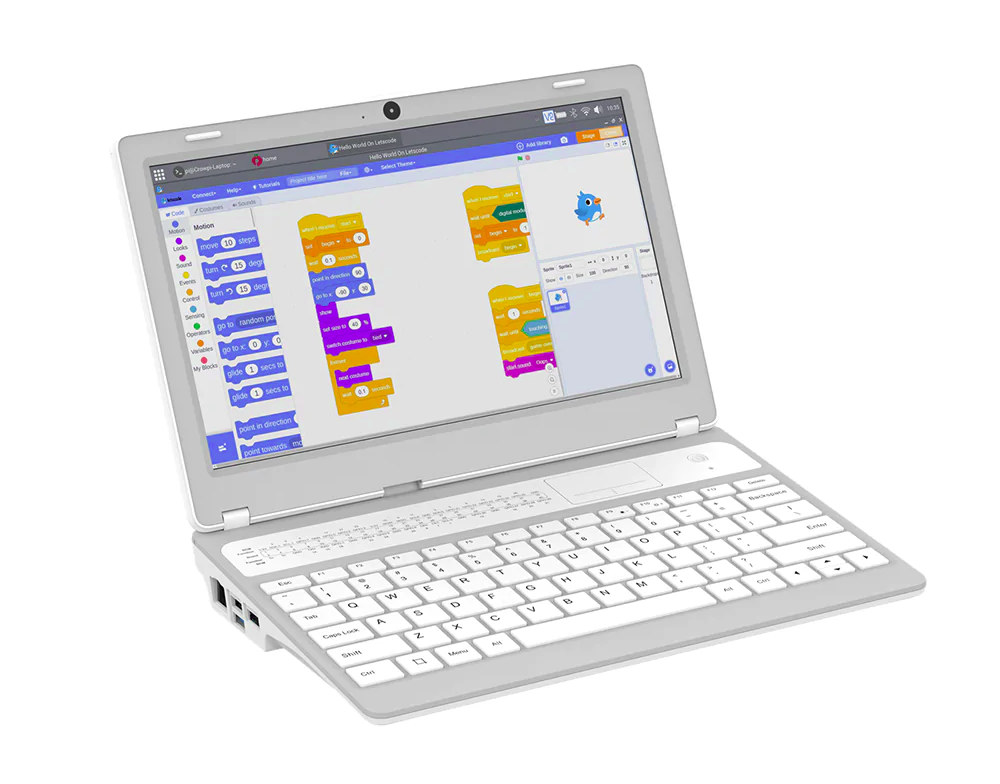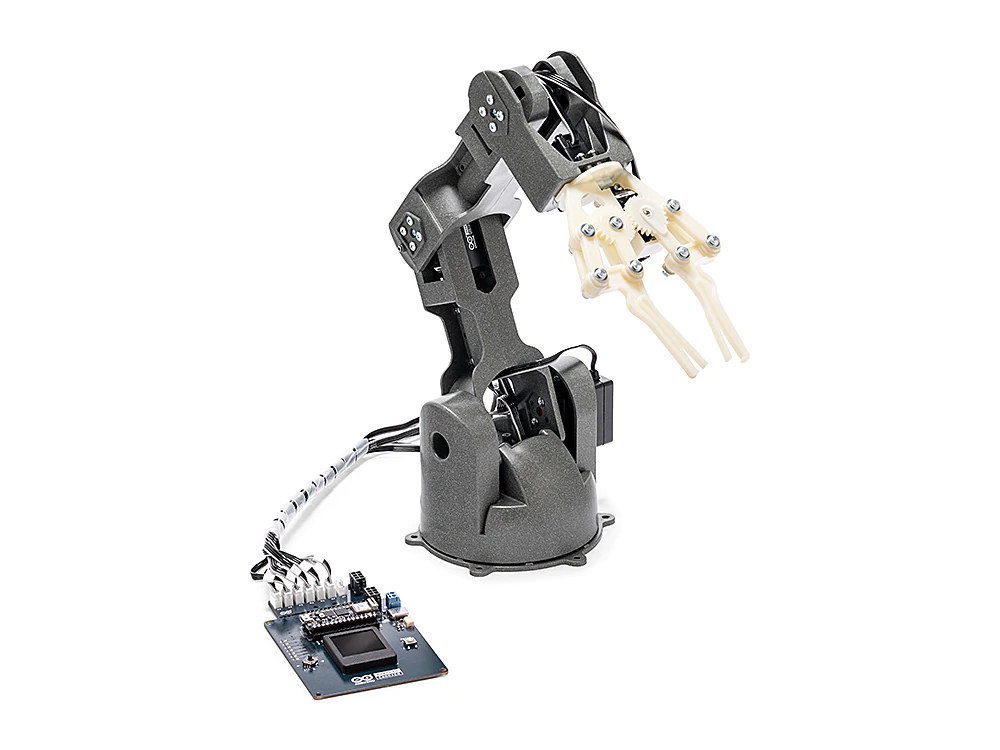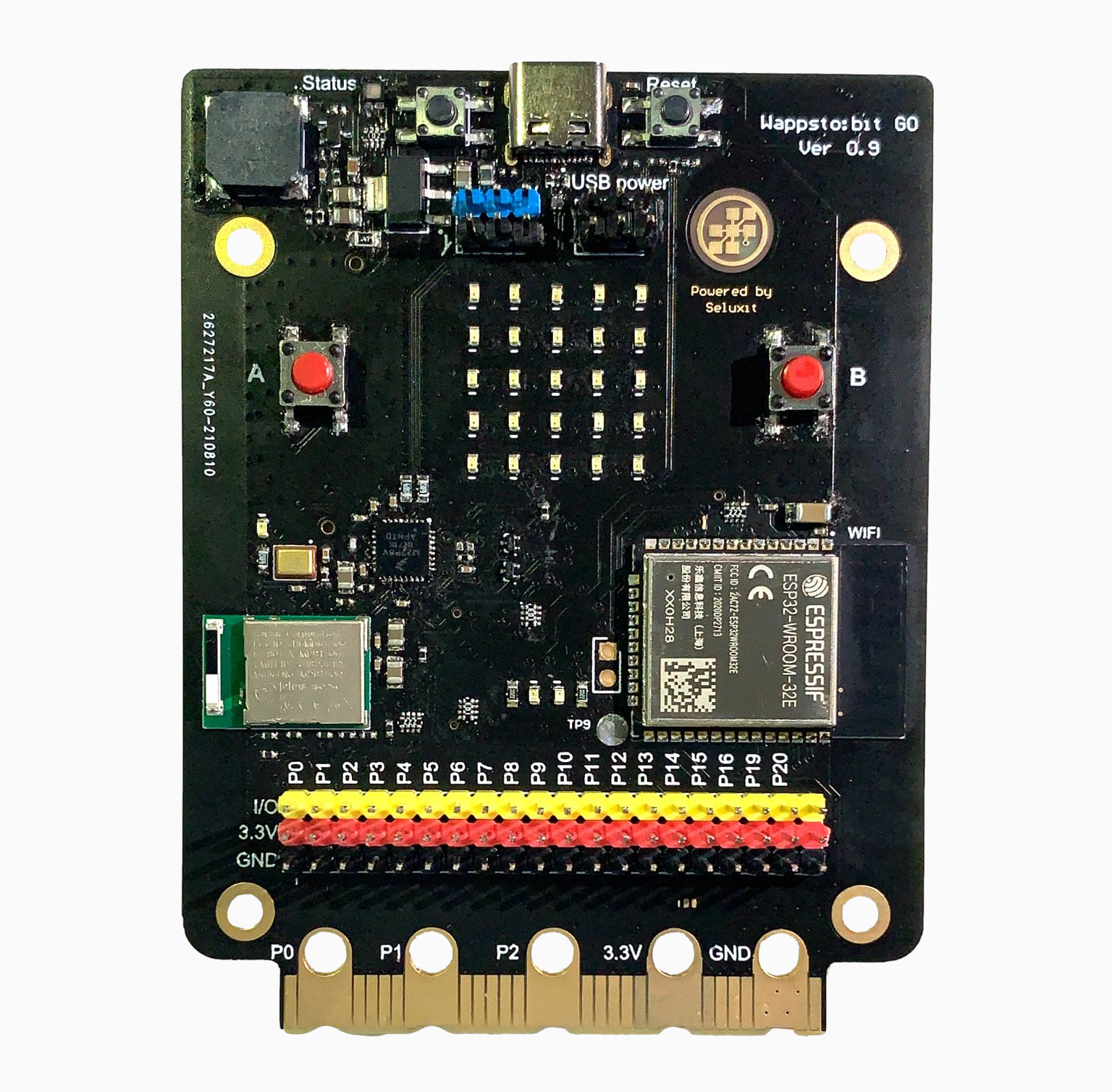There’s now a Raspberry Pi 400 alternative with the Orange Pi 800 Keyboard PC that offers a very similar design, but it is powered by a Rockchip RK3399 hexa-core Cortex-A72/A53 processor. Like the Raspberry Pi model, the Orange Pi 800 comes with 4GB RAM, Gigabit Ethernet, dual-band WiFi 5 and Bluetooth 5.0, two USB 3.0 ports, and one USB 2.0 port, but it also adds 64GB on-board flash storage and features one full-size HDMI port capable of 4Kp60 resolution plus a VGA port, instead of two micro HDMI ports. Orange Pi 800 specifications: SoC – Rockchip RK3399 hexa-core big.LITTLE processor with 2x Arm Cortex-A72 cores up to 1.8GHz, 4x Arm Cortex-A53 cores up to 1.4GHz, and an Arm Mali-T860MP4 GPU System Memory – 4GB LPDDR4 Storage – 64GB eMMC flash, microSD card slot Video Output HDMI 2.0 port up to 4Kp60 VGA port up to Full HD resolution Audio 3.5mm […]
OpenHarmony development board borrows BBC Micro:bit edge connector
HopeRun’s HiHope development board features a HiSilicon Hi3861V100 32-bit RISC-V microcontroller compatible with OpenHarmony OS and looks very much like the BBC Micro:bit educational board notably with its edge connector. The board is also designed for youth education (in China) and comes with similar sensors, but there are some differences such as a 0.96-inch OLED instead of an LED matrix and support for offline voice recognition. There’s no wireless connectivity apart from NFC support. HiHope board specifications: MCU – HiSilicon Hi3861 32-bit microcontroller @ up to 160 MHz with 352 KB SRAM and 288 KB ROM, 2 MB flash memory Display – 0.96-inch OLED display with 128×64 resolution (SSD1306) Connectivity – NFC with R/W mode, card emulation, and bidirectional mode USB – 1x USB Type-C port for power and programming Sensors – Temperature & humidity sensor, light sensor, microphone, 6-axis motion sensor Expansion – Edge connector with 5x rings (3x […]
myBuddy 280 dual arm robot features Raspberry Pi 4 SBC and ESP32 controllers
Elephants Robotics myBuddy 280, aka myBuddy 280 Pi, is a dual-arm collaborative robot for education with a 7-inch display powered by Raspberry Pi 4 SBC, and also features three ESP32-based M5Stack core modules that help with the internal communication between the motors and the Raspberry Pi board. It builds upon the earlier myCobot 280 Pi robot with a single arm, with the same 280mm working range, but the new robot offers two arms, and a total of 13 degrees of freedom (DoF). The robot is also equipped with two 2MP HD cameras for computer vision, a standard 3.3V expansion I/O interface, a LEGO expansion interface, and can be fitted with a variety of adapters such as suction pumps, grippers, little hands (see below), etc… myBuddy 280 specifications: SBC – Raspberry Pi 4 (2GB or 4GB RAM) single board computer to control the display and communicate with the ESP32 modules IoT […]
CrowPi L Raspberry Pi 4 laptop review – Part 1: Unboxing and teardown
Elecrow CrowPi L is an 11.6-inch laptop shell based on Raspberry Pi 4 designed for STEM education with optional electronics modules and tutorials. That’s an evolution of the CrowPi 2 laptop I reviewed in 2020 with a thinner design and more flexible since the electronics modules are optional, so it can serve the market of people just wanting a Raspberry Pi 4 laptop. The company has sent me a full “CrowPi L Advanced Kit” for review with the CrowPi L laptop fitted with a Raspberry Pi 4, as well as the Crowtail Starter Kit for Raspberry Pi. CrowPi L Advanced Kit Unboxing Let’s check out the laptop package first. Since in this design, the laptop comes with a battery, and mine already had a Raspberry Pi 4 installed, I could just turn it on immediately. Accessories include a wireless mouse, a 12V/2A power supply (with USB Type-C plug… this should […]
STEPFPGA FPGA board is programmable with a Web IDE (Crowdfunding)
STEPFPGA MXO2Core miniature FPGA development board is based on Lattice MXO2-4000 FPGA, and designed for education with an easy-to-use Web IDE, instead of the more traditional tools that can be frustrating to use, and detailed tutorials. The board also comes with a 2-digit segment display, some LEDs, push buttons, and a 4-way DIP switch, as well as two rows of twenty pins for I/O expansion, and a USB Type-C port used for power, programming, or mass storage. STEPFPGA MXO2Core specifications: FPGA – Lattice Semi MachXO2 X02-4000 FPGA with 4320 LUTs Display – 2-digit segment display USB – 1x USB Type-C port for power, programming (UART), and mass storage Expansion – 2x 20-pin headers with up to 36x GPIOs, SPI, I2C, 3.3V, VBUS, GND; breadboard-compatible Misc – 2x RGB LEDs, 8x red LEDs, 4-way DIP switch, 4x push buttons Power Supply – 5V via a USB port Dimensions – Small four-layer […]
CrowPi L is a $200 laptop shell for Raspberry Pi 4
Two years ago, we reviewed CrowPi 2 Raspberry Pi 4 laptop designed for STEM education with embedded electronics modules and Letscode software with step-by-step tutorials to learn Scratch and Python programming. I found it quite good, but many people were mostly interested in having a Raspberry Pi 4 laptop, and the price tag was a bit high at the time. That’s probably why Elecrow has now designed for CrowPi L laptop shell for Raspberry Pi 4 based on the CrowPi 2 but without all the electronics modules, and with a built-in battery to operate more like an actual laptop. CrowPi L laptop shell specifications: Compatible SBC’s – Raspberry Pi 4 Model B only Storage – Full-size SD card slot Display – 11.6-inch 1366×768 IPS screen (CrowPi 2 was 1920×1080) Video Output – HDMI output for external monitor Camera – 2MP camera Audio – Built-in microphone and stereo speaker; 3.5mm audio […]
Arduino Braccio++ robotic arm is designed for high-school and university students
Arduino Education has just launched the Braccio++ robotic arm for advanced students in high school or at university in order to let them experiment with a 6 DOF, industrial, assembly line-inspired robot. The new robotic arm provides an upgrade to the Tinkerkit Braccio robot and has been designed to assist in teaching real-world manufacturing techniques,topics such as physics and robotics, and concepts like motions, forces, torque, gear ratio, stability, and weight of payload. The Arduino Braccio++ is comprised of the Braccio carrier board equipped with an Arduino Nano RP2040 Connect that controls six Arduino RS485 Smart Servo Motors with specifically four SR418D servo motors for the arm joints, and two SR312 servo motors for the claw. Four lessons and two projects are included in the kit, and it’s made for up to three students. Arduino says the new robotic arm is made of recycled and eco-friendly materials with the […]
Wappsto:bit GO – An ESP32 board with plenty of sensors, Micro:bit compatibility (Crowdfunding)
Wappsto:bit GO is an ESP32 board compatible with BBC Micro:bit accessories thanks to a compatible edge connector, but adding WiFi to Bluetooth LE, and offering some extras compared to Elecrow Mbits ESP32-based BBC Micro:bit clone. The new board is notably equipped with a wider range of sensors including a light sensor, a magnetometer, and sound sensor beside the temperature sensor and accelerometer present in the original board, and it also exposes GPIO through a more traditional 2.54-pitch header to facilitate the integration of a wider variety of add-on boards. Wappsto:bit GO specifications: Wireless modules ESP32-WROOM-32E module with ESP32 dual-core microcontroller, 4MB flash, 2.4 GHz WiFi and Bluetooth LE connectivity, built-in PCB antenna Raytac MDBT50Q-512K Bluetooth 5.2 module based on nRF52833 with 512KB Flash MCU – NXP Kinetis KL2 Arm Cortex-M0+ microcontroller (MKL27Z256VFM4 ) with 256KB Flash (for USB port handling) Display – 25 LED matrix Sensors Temperature sensor, Light sensor […]


